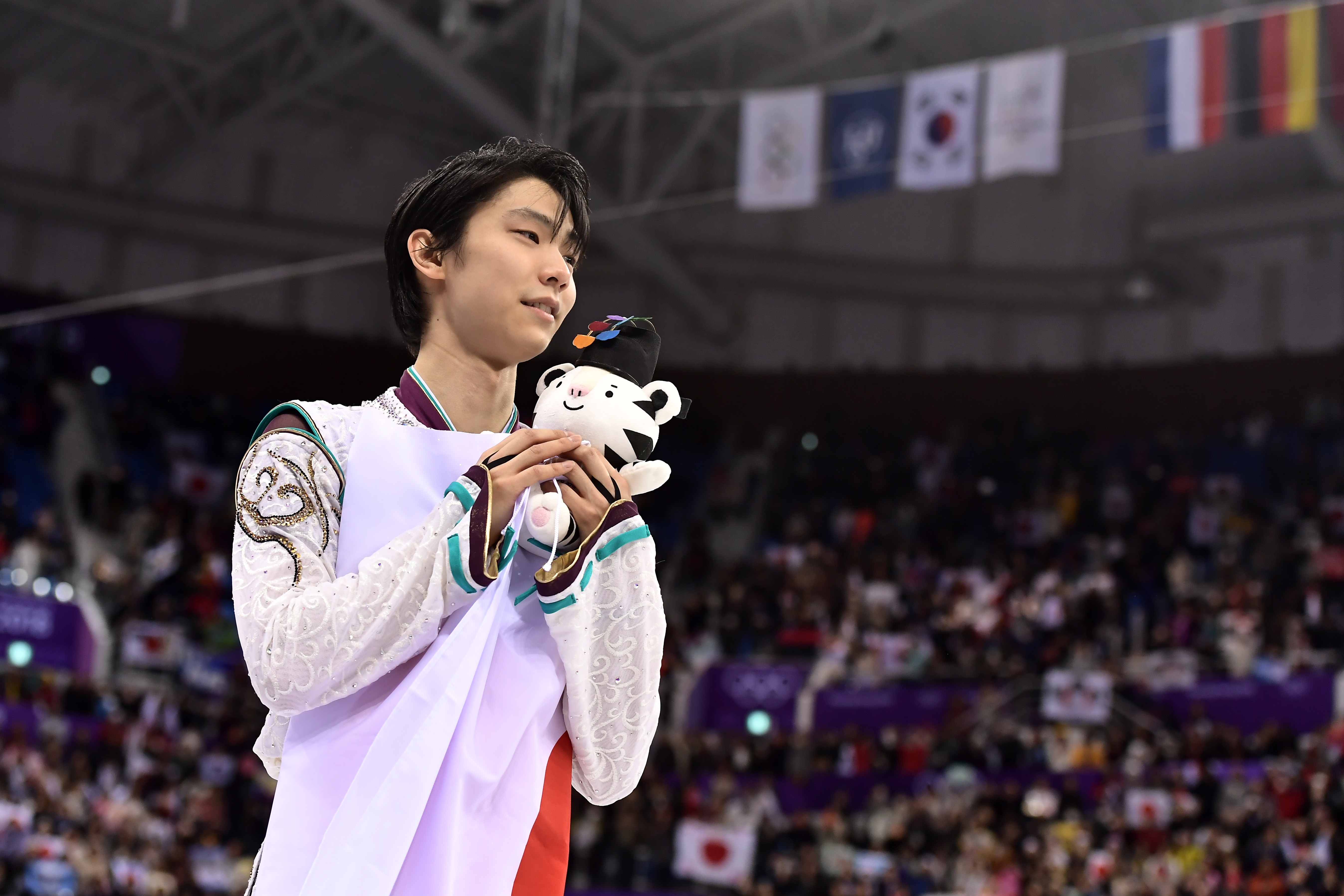
by Nick Reeves
© Agence France-Presse
GANGNEUNG, South Korea (AFP) — Japan’s Yuzuru Hanyu disclosed he had never “fully healed” from the serious injury that almost scuppered his Olympics after clinching the first back-to-back men’s figure skating title in more than six decades on Saturday.
The 23-year-old cemented his status as the modern day ‘ice prince’ when overcoming a three-month injury hiatus to add Pyeongchang gold to his Sochi 2014 success and emulate American Dick Button, Olympic champion in 1948 and 1952.
“I’m not fully healed, I really pushed it hard and there were some jumps and elements that I could not perform, but I forced myself to do so,” revealed Hanyu, who damaged ankle ligaments in a training accident in November.
“My injuries were more severe than I thought, but I’ve been fortunate to make it to the Olympics, and that I’m able to smile now explains what I’m feeling.
“I’ve had a slew of injuries since Sochi, but I wanted to have the courage to be bold enough to challenge myself.”
The charismatic skating icon had promised to reward his army of ardent supporters with “a dream performance” and he didn’t let them down as he led a Japanese one-two with Shoma Uno taking silver, ahead of Spain’s Javier Fernandez with bronze.
“I worried a lot of people as I could not practise because of my injury. So, there was stronger support than before.”
Hanyu’s Sochi triumph had elevated him to cult status in Japan, and his exploits in South Korea will only serve to propel his standing even further.
After his not-quite-spotless free skate, which opened with a quickfire quad salchow and quad toeloop, he bowed to his fans as they in turn tossed his Winnie The Pooh stuffed toys, his mascot, onto the Gangneung Arena ice.
But this was no teddy bear’s picnic for the two-time world champion, that was evident from his tears of relief after his score of 206.17 points came over the tannoy.
He then had to sit and suffer as first six-time European champion Fernandez, and then Uno, attempted valiantly but in vain to topple the rink king.
He took the Pyeongchang plaudits with a combined score of 317.85 to give him a cushion of almost 11 points over 19-year-old Uno (306.90), with Fernandez (305.24) just behind.
Remarkable journey
For Fernandez, it was the perfect way to end his last Olympics, claiming Spain’s first ever figure skating medal.
“It was a good experience, I know I didn’t do the perfect programme but I was satisfied with what I did and it got me an Olympic medal, that’s all I’ve got to say.
“I’ve been dreaming about it and it’s been a big goal for me. I knew it was going to be my last one (Olympics) so it’s true that I was a little bit more nervous than yesterday.”
Hanyu was visibly moved by his latest triumph in a remarkable journey from the day in 2011 he had to flee a Sendai ice rink when a devastating earthquake hit Japan.
As well as claiming only the third ever skating title for Japan, his gold medal was also the 1,000th awarded in Winter Games history.
Aside from Hanyu’s heroics, the free skate was marked by the first ever routine featuring six quads from American teenager Nathan Chen, who scored an Olympic record of 215.08.
It was enough for fifth place for the 18-year-old, whose bid to upstage Hanyu had come unstuck when he flopped in the short programme on Friday to leave him trailing in 17th.
Hanyu meanwhile, pushed by the likes of his training partner Fernandez, Uno, Chen and company, has pushed figure skating to new limits.
The number of quads, skating’s most difficult jump, executed in the free skate final topped the 50-mark – something that would have astounded Button.
For back at the ’52 Games in Oslo, Button had shaken up skating when he landed the Olympics’ first ever triple jump of any kind, a triple loop.
© Agence France-Presse







